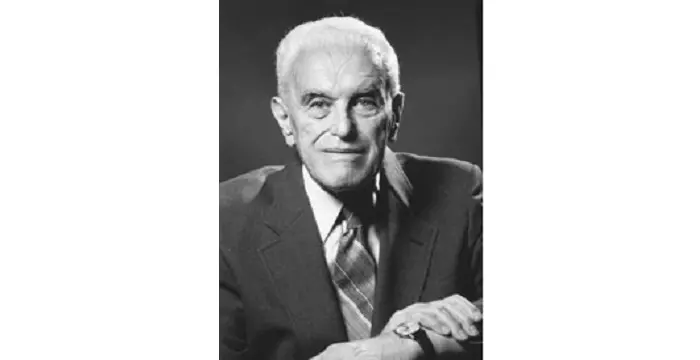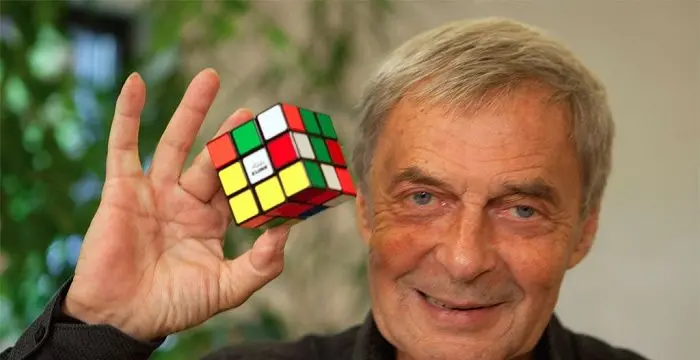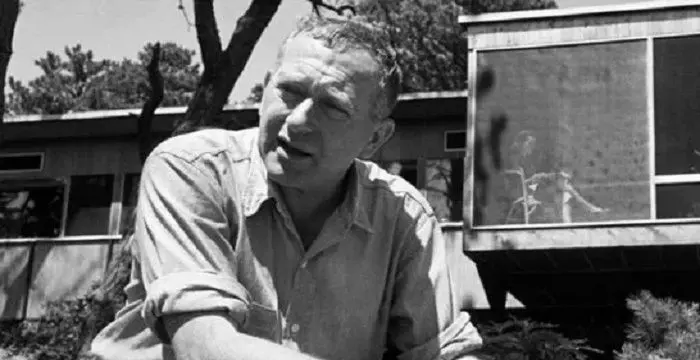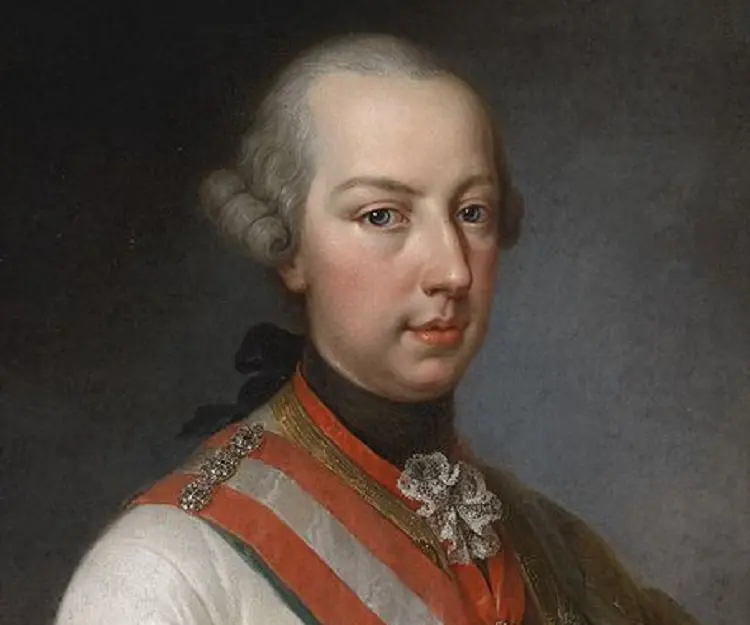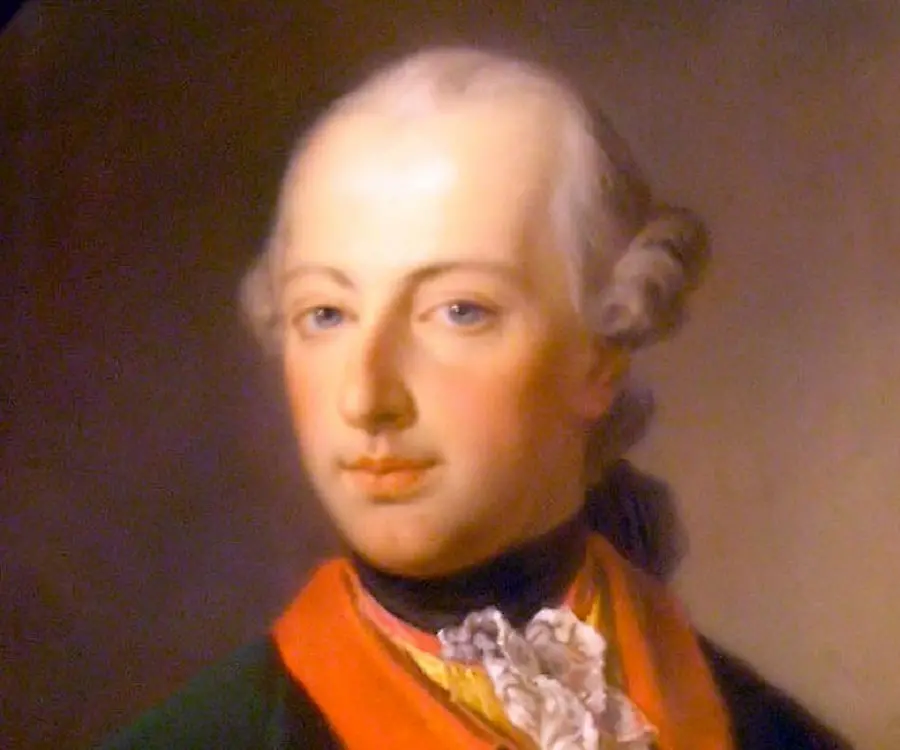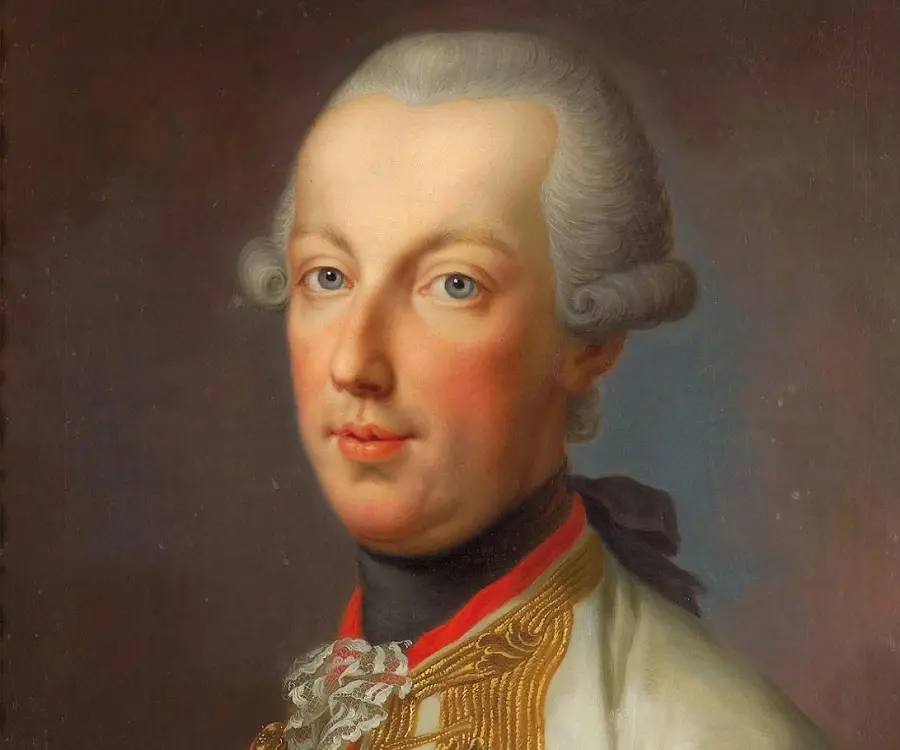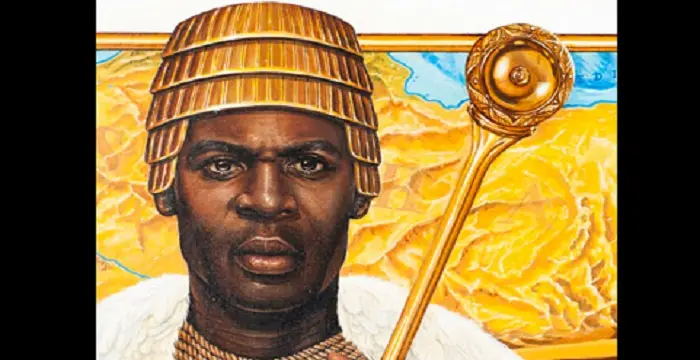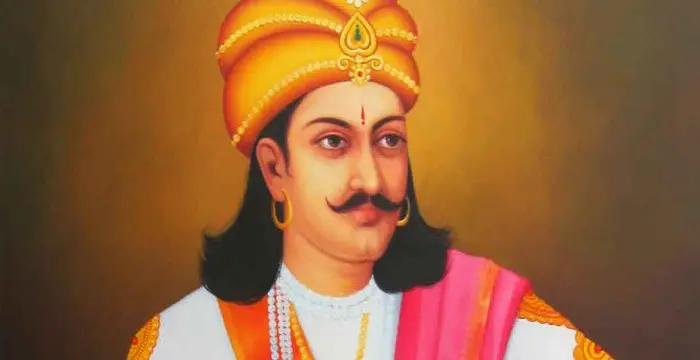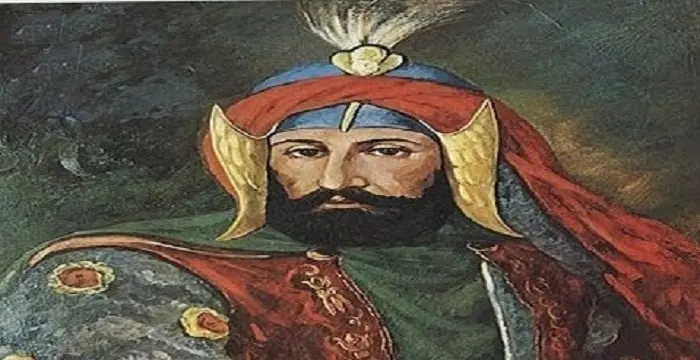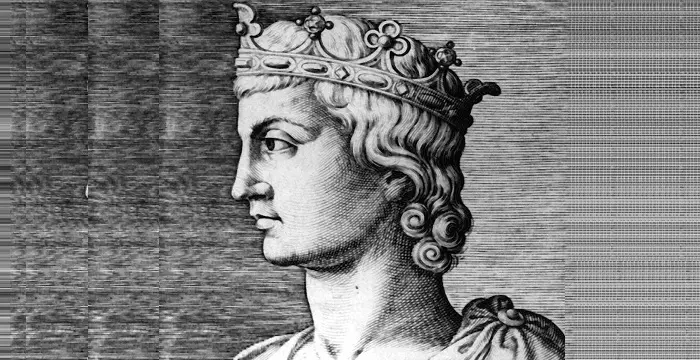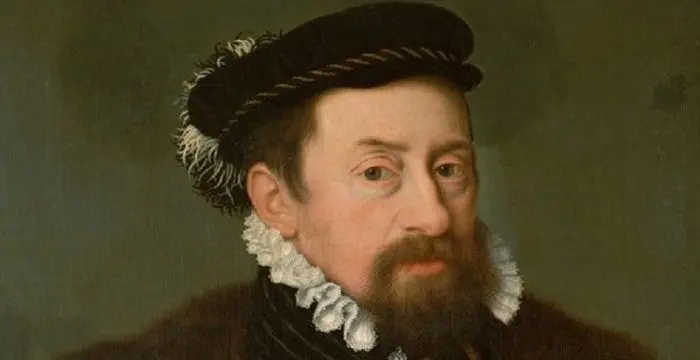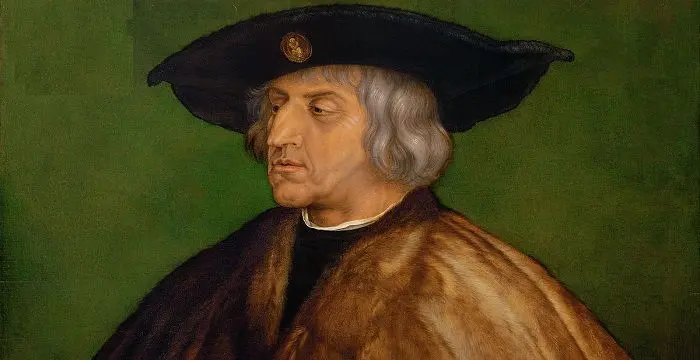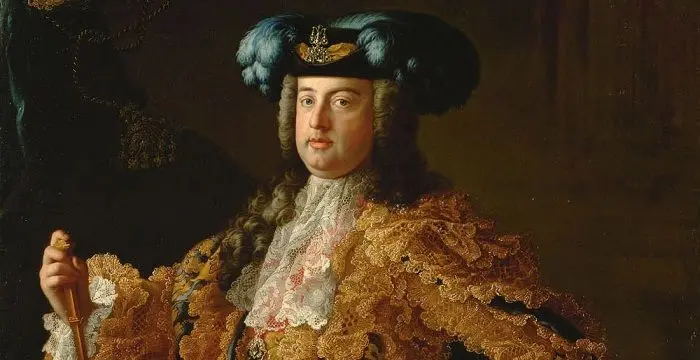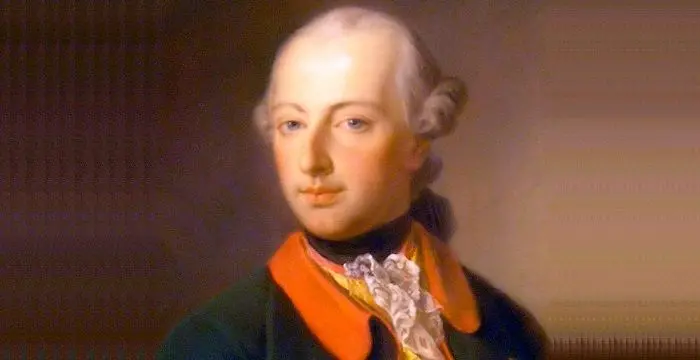
Joseph II, Holy Roman Emperor - Hungarian Men, Birthday and Facts
Joseph II, Holy Roman Emperor's Personal Details
Joseph II was the Holy Roman Emperor of the Austrian Habsburg dominion from 1765 to 1790
| Information | Detail |
|---|---|
| Birthday | March 13, 1741 |
| Died on | February 20, 1790 |
| Nationality | Hungarian |
| Famous | Historical Personalities, Emperors & Kings, Emperors, Holy Roman Emperor, Hungarian Men, Kings |
| Spouses | Maria Josepha of Bavaria, Princess Isabella of Parma |
| Siblings | Marie Antoinette |
| Childrens | Archduchess Maria Theresa of Austria |
| Founder / Co-Founder |
|
| Birth Place | Vienna |
| Religion | Catholicism |
| Gender | Male |
| Father | Francis I, Holy Roman Emperor |
| Mother | Maria Theresa |
| Sun Sign | Pisces |
| Born in | Vienna |
| Famous as | Holy Roman Emperor |
| Died at Age | 48 |
// Famous Hungarian Men
John C Harsanyi
Read on to know the profile, career, important works, contributions and timeline of the famous American economist and Nobel Laureate, John C Harsanyi.
Erno Rubik
The famous inventor and educationist, Erno Rubik is known world-wide for his invention the ‘Rubik’s Cube’. To know more about the childhood, profile, timeline and career of this famous architect-inventor read on.
Marcel Breuer
Marcel Lajos Breuer was a world famous modernist architect and designer considered as one of the most prominent proponents of International Style. This biography profiles his childhood, life, career, achievements and timeline.
Joseph II, Holy Roman Emperor's photo
Who is Joseph II, Holy Roman Emperor?
Joseph II was the Holy Roman Emperor of the Austrian Habsburg dominion from 1765 to 1790. Following the death of his father, he served as a co-ruler with his mother, gaining sole reign only in 1780. Joseph II, during his reign, introduced in his dominion numerous policies that were fiercely opposed as the policies interfered with the age-old customs and beliefs. It was for his reforms that Joseph gained the reputation of an ‘enlightened despot’. Spanning over administrative, legal, economic and ecclesiastical field, the reforms though unprejudiced and liberal in structure, did not go too well with the citizens and were met with significant opposition. As such, towards the end of his rule, he failed to get his programmes implemented. Despite the criticism and opposition, Joseph’s policies, popularly known as Josephinism, aimed at equating the society on all grounds – religion, education, administration and law. A proponent of enlightened absolutism, Joseph II is ranked as one of the three great enlightenment monarchs. Having no children of his own, he was succeeded by his brother Leopold II.
// Famous Kings
Sundiata Keita
Sundiata Keita was the founder of the Mali Empire in West Africa. This biography profiles his childhood, early life, struggles, founding of empire, rule, administration, achievements and also gives some fun facts.
Ashoka
Ashoka was the third emperor of the Mauryan Dynasty and ruled almost the entire Indian subcontinent. This biography profiles his childhood, life, reign, achievements and timeline
Murad IV
Murad IV was one of the mighty Sultans in the history of the Ottoman Empire. This biography profiles his childhood, family, accession, rule, administration and timeline.
Childhood & Early Life
Joseph II was born on March 13, 1741, in Vienna, Austria, to Francis I, Holy Roman Emperor, and his wife Maria Theresa of Austria. He was the eldest child of his parents and had a younger sister Marie Antoinette and a brother Leopold II.
Joseph gained his education through the writings of Voltaire and the Encyclopédistes. He was also trained by government officials on the working of different state administrations of the Austrian dominions and the Holy Roman Empire.
Accession & Reign
Joseph began his career as a member of the constituted council of state. Unlike his mother, Joseph believed in religious toleration and was keen on restricting the power of church. He also aimed at relieving the peasants of feudal burden and remove restriction on trade and education.
Following his father’s death in 1765, Joseph was promoted to the rank of Holy Roman Emperor, and was known as Joseph II. He served as his mother’s co-regent and took to handling military and foreign affairs. However, the major power remained with his mother who exerted sovereign control over the dominions. This limited his ability to take decisions.
His mother’s death in 1780 made Joseph II the sole ruler of the Habsburg Lands. Immediately after becoming the Holy Roman Emperor, he took the government on a new course, but not before finishing the work of reform as started by his mother.
His foremost work as an Emperor was to consolidate an education system throughout the monarchy. He expanded elementary education making it compulsory for all children. For the underprivileged, he created scholarship programs that gave poor students equal opportunity for learning. He appointed best of scholars and scientists for the University of Vienna.
The other reforms that Joseph II quickly administered were secularization of the church lands and reduction of the religious order and clergy. He limited the power of the Catholic Church. His religious reform met with unpopularity by the public, as they condemned modernization.
In 1781, Joseph’s religious tolerance led to the establishment of the Patent of Tolerance according to which minority religions, such as Greeks, Protestants and Jews attained limited rights to worship freely.
The conflict with the Roman Catholic Church only brought forth difficulties in Joseph II’s reign. He established a training college for priest and deprived clergymen of tithe. Furthermore, he deprived bishops of their powers. Joseph closed more than 700 monasteries and reduced the number of monks by 27000 from the previous 65000. Contradictorily, he supported increase of bishoprics, parishes, and secular clergy. He reduced the number of holy days and changed the pattern in which the Mass was celebrated.
Joseph aimed at building a centralized and uniform government that came under the supreme autocrat, i.e., himself. The recruitment of the government officials was based on their fervent spirit of service to country and countrymen and their promotion being guaranteed only by merit. To promote a sense of unity in the kingdom, he introduced German as the compulsory language of the state.
He established a uniform system in managing state expenditure and revenue by accumulating all the state revenues, expenses and debts of the territories of the Austria crown within a uniform system.
On the legal front, Joseph II abolished death penalty and brutal punishment. Furthermore, he established a system in which all offenders were treated equally. He abolished serfdom and granted freedom of the press. Besides, he upgraded the value of the land to impose a single and egalitarian tax on land. However, this policy met with revolt from both landowners and peasantry.
In terms of foreign policy, Joseph II was an expansionist leader. During his decade-long reign, he aimed at making Habsburg the greatest monarchy of the European powers. He aimed at acquiring Bavaria but the same was opposed by the King of Prussia.
Joseph II reigning policies did not go too well with the public as the changes interfered with the age-old customs, causing unrest in the dominion. Right from religious issues to administrative policies and legal reforms, the nobility and the people were enraged by his egalitarian and despotic attitude.
By 1790, rebellion broke out in Belgium and Hungary against Joseph II’s reforms. There was restlessness in other parts of the dominion due to his war with the Ottomans. The threat of dissolution caused him to give up on some of his reforms.
Major Works
An enlightened despot, Joseph II is best remembered for his Josephinism, which was a collection of reforms that he introduced during his sole reign between 1780 and 1790. Under Josephinism, he planned to change the face and structure of administration, law, education, economic and ecclesiasticism of the Habsburg dominion. However, his reforms met with measured success and instead were fiercely opposed by the government officials, catholic priests and the public AT large.
Personal Life & Legacy
In 1760, Joseph married Princess Isabella of Parma. The two loved each other dearly. The couple was blessed with a daughter, Maria Theresa.
Immediately after the birth of Maria Theresa, Isabella conceived twice but both resulted in miscarriage. This was consecutively followed by yet another pregnancy in 1763.
Inflicted with smallpox, Isabella gave birth to a premature daughter after six months of pregnancy. However, due to early birth, the baby died shortly after being born. Unable to bear the sudden tragedy and down with ill health, Isabella died a week later. Both the deaths left Joseph devastated. He swore never to marry again.
In 1765, due to political pressure, he had to marry his second cousin, Princess Maria Josephs of Bavaria. Though Josepha loved her husband, he did not reciprocate the love and instead was cold and indifferent towards her. The marriage lasted for a little more than two years. Josepha died due to smallpox. Following her death, he never married again.
In 1770, his only child, Maria Theresa, became severely ill with pleurisy. Her eventual death left him heartbroken and deeply inconsolable.
Joseph II’s health declined progressively towards the end of 1780s. Earning more enemies than friends during his reign led him to die all alone as neither his ministers nor his brother visited him on his death bed.
On February 20, 1790, he breathed his last. His death was not mourned by public as he became a largely unpopular figure due to his radical reforms and choices. He was buried at tomb number 42 in the Imperial Crypt in Vienna.
// Famous Emperors
Sundiata Keita
Sundiata Keita was the founder of the Mali Empire in West Africa. This biography profiles his childhood, early life, struggles, founding of empire, rule, administration, achievements and also gives some fun facts.
Ashoka
Ashoka was the third emperor of the Mauryan Dynasty and ruled almost the entire Indian subcontinent. This biography profiles his childhood, life, reign, achievements and timeline
Murad IV
Murad IV was one of the mighty Sultans in the history of the Ottoman Empire. This biography profiles his childhood, family, accession, rule, administration and timeline.
Joseph II, Holy Roman Emperor biography timelines
- // 13th Mar 1741Joseph II was born on March 13, 1741, in Vienna, Austria, to Francis I, Holy Roman Emperor, and his wife Maria Theresa of Austria. He was the eldest child of his parents and had a younger sister Marie Antoinette and a brother Leopold II.
- // 1760In 1760, Joseph married Princess Isabella of Parma. The two loved each other dearly. The couple was blessed with a daughter, Maria Theresa.
- // 1763Immediately after the birth of Maria Theresa, Isabella conceived twice but both resulted in miscarriage. This was consecutively followed by yet another pregnancy in 1763.
- // 1765Following his father’s death in 1765, Joseph was promoted to the rank of Holy Roman Emperor, and was known as Joseph II. He served as his mother’s co-regent and took to handling military and foreign affairs. However, the major power remained with his mother who exerted sovereign control over the dominions. This limited his ability to take decisions.
- // 1765In 1765, due to political pressure, he had to marry his second cousin, Princess Maria Josephs of Bavaria. Though Josepha loved her husband, he did not reciprocate the love and instead was cold and indifferent towards her. The marriage lasted for a little more than two years. Josepha died due to smallpox. Following her death, he never married again.
- // 1770In 1770, his only child, Maria Theresa, became severely ill with pleurisy. Her eventual death left him heartbroken and deeply inconsolable.
- // 1780His mother’s death in 1780 made Joseph II the sole ruler of the Habsburg Lands. Immediately after becoming the Holy Roman Emperor, he took the government on a new course, but not before finishing the work of reform as started by his mother.
- // 1780 To 1790An enlightened despot, Joseph II is best remembered for his Josephinism, which was a collection of reforms that he introduced during his sole reign between 1780 and 1790. Under Josephinism, he planned to change the face and structure of administration, law, education, economic and ecclesiasticism of the Habsburg dominion. However, his reforms met with measured success and instead were fiercely opposed by the government officials, catholic priests and the public AT large.
- // 1781In 1781, Joseph’s religious tolerance led to the establishment of the Patent of Tolerance according to which minority religions, such as Greeks, Protestants and Jews attained limited rights to worship freely.
- // 1790By 1790, rebellion broke out in Belgium and Hungary against Joseph II’s reforms. There was restlessness in other parts of the dominion due to his war with the Ottomans. The threat of dissolution caused him to give up on some of his reforms.
- // 20th Feb 1790On February 20, 1790, he breathed his last. His death was not mourned by public as he became a largely unpopular figure due to his radical reforms and choices. He was buried at tomb number 42 in the Imperial Crypt in Vienna.
// Famous Holy Roman Emperor
Frederick II, Holy Roman Emperor
Frederick II was a mighty Holy Roman Emperor of the Medieval Era. This biography profiles his childhood, life, reign, achievements and timeline.
Maximilian II, Holy Roman Emperor
Maximilian was the Holy Roman Emperor who served as the King of Germany, Bohemia, Hungary and Croatia. Check out this biography to know about his childhood, life, achievements, works & timeline
Maximilian I, Holy Roman Emperor
Maximilian I was the King of Romans and first elected Holy Roman Emperor. Check this biography to learn in details about his life, his conquests, personal life and timeline
Francis I, Holy Roman Emperor
Francis I served as the Holy Roman Emperor and Grand Duke of Tuscany from 1740s until his death in 1765. Check out this biography to know about his childhood, life, achievements, works & timeline
Joseph II, Holy Roman Emperor's FAQ
What is Joseph II, Holy Roman Emperor birthday?
Joseph II, Holy Roman Emperor was born at 1741-03-13
When was Joseph II, Holy Roman Emperor died?
Joseph II, Holy Roman Emperor was died at 1790-02-20
Where was Joseph II, Holy Roman Emperor died?
Joseph II, Holy Roman Emperor was died in Vienna
Which age was Joseph II, Holy Roman Emperor died?
Joseph II, Holy Roman Emperor was died at age 48
Where is Joseph II, Holy Roman Emperor's birth place?
Joseph II, Holy Roman Emperor was born in Vienna
What is Joseph II, Holy Roman Emperor nationalities?
Joseph II, Holy Roman Emperor's nationalities is Hungarian
Who is Joseph II, Holy Roman Emperor spouses?
Joseph II, Holy Roman Emperor's spouses is Maria Josepha of Bavaria, Princess Isabella of Parma
Who is Joseph II, Holy Roman Emperor siblings?
Joseph II, Holy Roman Emperor's siblings is Marie Antoinette
Who is Joseph II, Holy Roman Emperor childrens?
Joseph II, Holy Roman Emperor's childrens is Archduchess Maria Theresa of Austria
Which company or organization was founded by Joseph II, Holy Roman Emperor?
Joseph II, Holy Roman Emperor was the founder/co-founder of Budapest University of Technology and Economics
What is Joseph II, Holy Roman Emperor's religion?
Joseph II, Holy Roman Emperor's religion is Catholicism
Who is Joseph II, Holy Roman Emperor's father?
Joseph II, Holy Roman Emperor's father is Francis I, Holy Roman Emperor
Who is Joseph II, Holy Roman Emperor's mother?
Joseph II, Holy Roman Emperor's mother is Maria Theresa
What is Joseph II, Holy Roman Emperor's sun sign?
Joseph II, Holy Roman Emperor is Pisces
How famous is Joseph II, Holy Roman Emperor?
Joseph II, Holy Roman Emperor is famouse as Holy Roman Emperor
